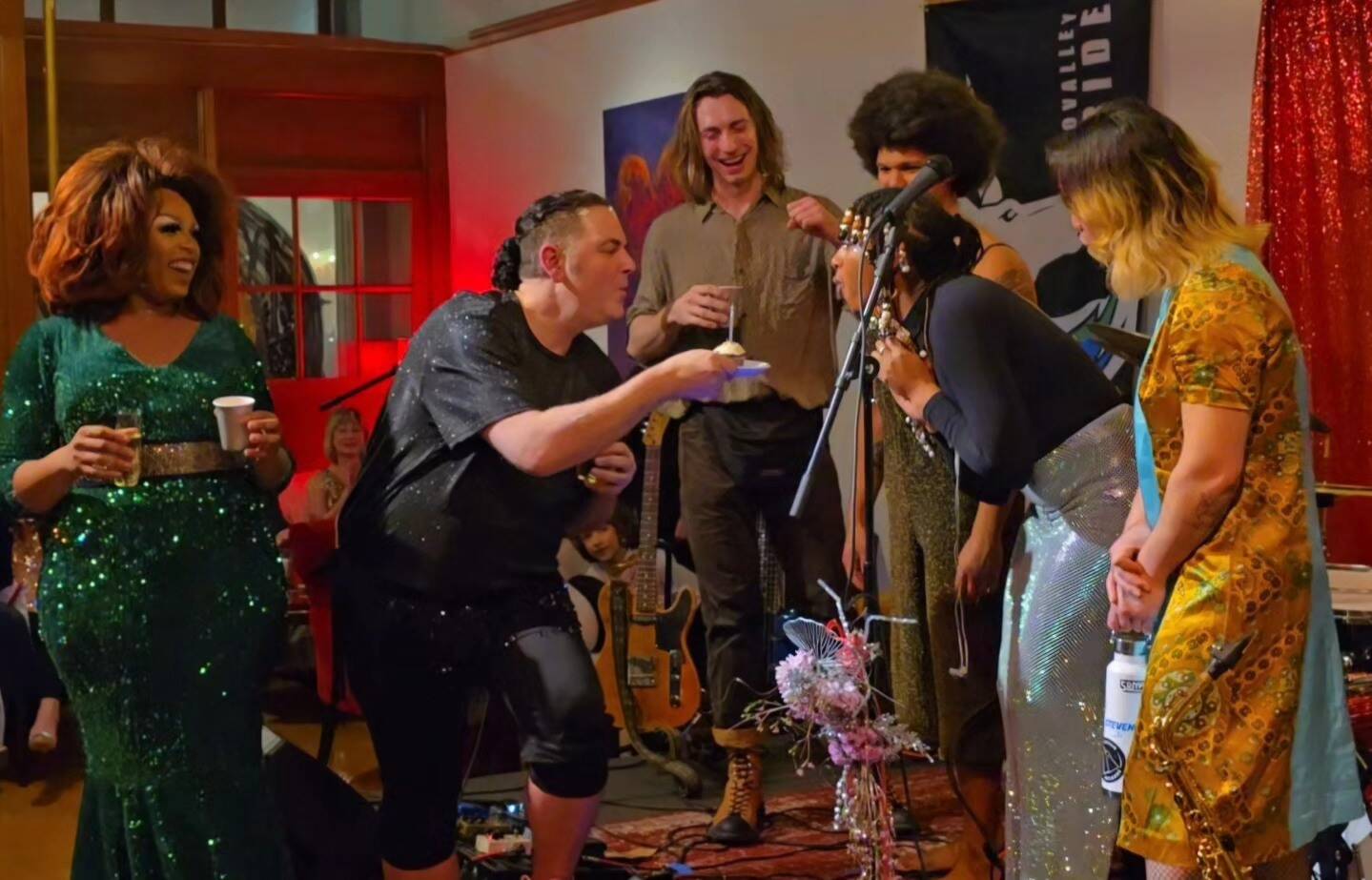By Conor Wilson,
For the Valley Record
In front of a packed room at Miller’s in Carnation, Greg Jamiel takes the microphone and welcomes residents to SnoValley Pride’s first anniversary celebration.
Jamiel, the LGBTQ+ community group’s founder, launched the nonprofit last February after attending a concert at Miller’s. Feeling the sense of community at the show that night, he revisited an idea that had been in his mind for years — the Valley needed a space for its LGBTQ+ residents.
When he launched SnoValley Pride that weekend, Jamiel was not quite sure what to expect. But the nonprofit has experienced rapid growth and widespread support while pioneering a space for LGBTQ+ residents in the Valley that had not previously existed.
“It’s been awesome. I’m pleasantly surprised at what’s happened this past year,” Jamiel said a few days prior to the group’s celebration. “It kind of blew my mind, actually.”
SnoValley Pride’s founding coincided with a turbulent time for LGBTQ+ rights nationally, marked by a rise in threats of violence and a record level of anti-LGBTQ+ legislation.
Last year, 510 anti-LGBTQ+ bills were introduced, including two in Washington, according to a tracker from the American Civil Liberties Union. Another 420 bills have been introduced in 2024, including four from Washington.
The flurry of legislation prompted the Human Rights Campaign to issue a declaration of emergency for the nation’s LGBTQ+ community last summer.
Back in Carnation, SnoValley Pride was simultaneously challenging the local reputation. Like many rural communities, the Valley has long been viewed by many as unfriendly toward LGBTQ+ people.
Jamiel admits that when he first launched the group, it came with some level of hesitation. He was unsure how it would be received. Now, one year in, he said the response from the majority of the community has been wholehearted support.
At no point was this more visible than in June, he said, when the group hosted its inaugural Pride Picnic in honor of Pride Month — a major milestone of an event that is returning again this summer. The picnic drew roughly 350 people to an afternoon festival at Tolt Commons Park.
In the lead-up to the event, a majority of businesses along Tolt Avenue, Carnation’s main street, agreed to fly Pride flags throughout the month. For Jamiel, the action demonstrated the community’s commitment.
“I’ve heard from so many different residents that it was moving to drive in,” he said. “Visibility really helps people feel safe. Having those Pride flags up was a powerful thing to happen for the first time ever.”
TIn April, the group became a fiscal project under the umbrella of A Supportive Community For All, a Carnation nonprofit promoting equity in the Valley. Additionally, their events, including drag shows, art sales, and an educational talk series in partnership with the Greater Seattle Business Association, have grown in attendance.
Despite the progress, threats and backlash against SnoValley Pride and LGBTQ+ residents persisted throughout the past year.
Several of the Pride flags that were hung downtown during Pride Month, for example, were torn down and stolen on a few occasions. The community rallied to replace them each time.
Feelings of safety also remain varied. In post-event surveys conducted by SnoValley Pride, LGBTQ+ residents are less likely than their neighbors to say they feel “extremely safe” in their community, Jamiel said.
“We made an amazing splash in our first year, but real deep change takes time,” he said said. “We’re willing to put in the work it takes to make that change happen.”
Part of that change includes a greater focus on helping youth. After two deaths of LGBTQ+ youth in the Valley last year, Jamiel said they are looking for ways to better support young people.
And while facing these challenges and threats can be intimidating at times, Jamiel said they no longer waver from their mission of building an accepting community for everyone.
“It doesn’t do anything but reinforce our commitment that we’re not going anywhere,” he said. “Those days of hiding and trying to fit the mold of society, they’re gone.”


